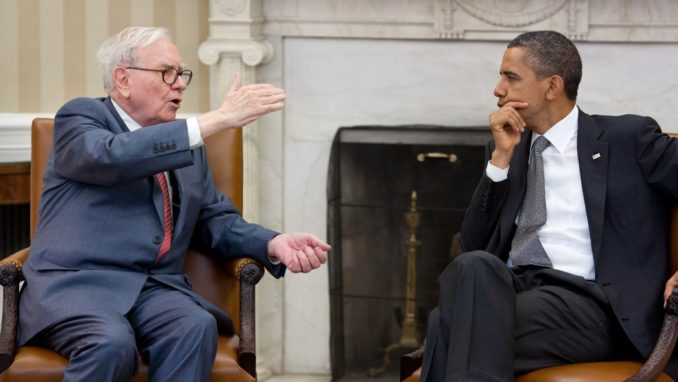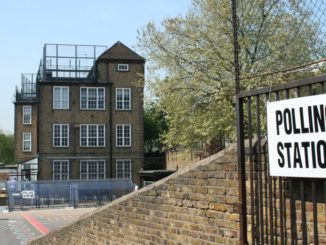
The White House from Washington, DC, Public domain, via Wikimedia Commons
Warren buffet famously quipped: “When the tide goes out you can see who has been bathing naked!” Now we know!
Both candidates for the premiership are senior Conservative Cabinet members and Ministerial office-holders, and naturally they promise to implement policies that reflect the principles of what those credentials stand for – such as free trade, less government intervention, low taxes, low regulation, free markets and pursuit of productive economic aims. If, listening to their pitches, they appear to agree that such ideas are worth pursuing, why do we have to watch their televised squabbles day after day while the machinery of government has been in lockdown for more than a month?
Let’s assume they agree that the fundamental need right now is to cut every pound of unnecessary public spending – and actually do it, not just talk about it. On this basis many commentators might say the difference between the two contenders is paper-thin and hence there is little to choose. But on the question of how best to achieve their mutually held aims, their respective records speak volumes.
Extravagance and waste
Rishi Sunak probably claims credit for devising the emergency policies that benefited businesses and people during the Covid pandemic and subsequent lockdowns – which is all very well, but much of his largesse was indiscriminate and grossly wasteful. Think back: “eat-out-to-help-out” was aimed to boost demand and protect jobs in the food service sectors by offering government-subsidised discounts on food and non-alcoholic drinks eaten in cafes or restaurants. It cost millions, spawned thousands of fraudulent claims and helped hugely to spread Covid by paying people to come together in closed spaces.
Many of his schemes, including furlough, intended to assist businesses during the lockdown actually served as invitations to scammers and crooks to help themselves to state handouts using the most blatant frauds – such as claiming furlough payments while requiring, or permitting, staff to carry on working. The same can be said of his schemes for “recovery” loans, job retentions, kickstart jobs scheme, apprenticeship grants, restart grants, self-employment income support schemes, and so on. A programme more susceptible to abuse is difficult to imagine. The billions doled out in the form of loans and grants enabled innumerable shadow companies to be deliberately incorporated with fraudulent intent, and kept zombie companies “alive”.
Even if Sunak did not personally oversee the grotesque level of waste on protective equipment, Nightingale hospitals, test-and-trace and – heaven help us – “unconscious bias training”, who was advising him? Who was he listening to? In my personal view, only someone totally lacking in powers of rational analysis could have passed this half-baked confection into law – for which reason I could not support his candidature for high office, even if I were eligible to vote – which I am not.
Those who have known Ms Truss throughout her political career believe she is more than capable of taking tough decisions when circumstances so demand, and is able to resist popular cries for knee-jerk fixes such as “windfall” or wealth taxes, energy nationalisation – and other demands that risk throwing out the baby of renewed enterprise with the bathwater of failed freebies and useless regulation.
Self-seeking quangos galore
The citizens of Britain have fallen prey to armies of quangos with grandiose titles but whose real purpose is simply to grow their budgets – and, by the same token, their payrolls. They specialise in spewing out regulations that achieve nothing you would pay for with your own money and are more likely to become ensnared in a consultative maze of bureaucratic indecision. Why else is civil justice stuck in a logjam of court cases awaiting trial? Same with passport renewals, NHS treatments and planning consents for the most trivial change-of-use applications. There are currently six-and-a-half million civil servants in the UK and many of them have learnt simply to say “no” rather than apply the raft of complex rules. Local government is stuck in the unhelpful culture of “sorry, can’t do”. Getting planning permission for building a few houses now takes longer than the second world war – as Matt Ridley wryly notes in the Spectator.
This is a time for establishing priorities. When the Austrian economist Ludwig von Mises was asked which reform he would introduce if allowed only one, his answer was simple: “sound money”. Prospective leaders and their supporters rarely acknowledge the extent to which our present woes stem from the money-creating mania to which our economy has been subjected for nigh on a dozen years. They suffer from the subliminal assumption that the state cannot go bust because it can simply bail out its spendthrift departments by creating still more money.
Inflation is the mathematical certainty
Since the origins of our current crisis lie in (i) the virtual shutting down of economic activity, notably production of goods and services; and (ii) the frenzy of emergency money-printing – the inflation that follows is a mathematical certainty.
It might be clearer if we referred to “money-printing” as “debt-creation” because every unit issued is a unit of debt, and it carries a “coupon”, or an interest rate set by the Bank of England. The rate is largely contrived because it is far lower than the risk-based rates that might apply to commercial transactions in the money markets. The coupons attached to government bonds (gilts) are kept low, often hovering just above zero, because the debt they represent is owed to the bond-holder by the government, and a mere 1 percent increase in the interest rate at present levels of government debt would cost the exchequer around £20 billion per month.
Don’t allow the apparent complexity of quantitative easing to hide the underlying farce: the Treasury computer floods the bond market with billions of pounds in new bonds which are then allocated to financial institutions, pension funds, insurance companies and commercial banks. The Bank of England then uses its own computer to buy up the new bonds – also buying higher-risk corporate and municipal bonds with low-rate coupons.
Contrary to folklore, the Bank of England is NOT independent
It’s a devils’ pact that makes nonsense of the central bank’s claim to be “independent” – a status granted by chancellor Gordon Brown in 1997 that included the exclusive right to set official interest rates. This allows the Bank to suppress the interest rate as part of its strategy to lower the cost of government borrowing and to achieve its target inflation rate of 2 per cent. [* see footnote]
The record, however, shows it’s exactly the other way round: in the real world of human action the interest rate is, and always must be, independent of the Bank’s failed attempts to suppress it.
And why is that? The reason is that the interest rate is not, as convention would have it, simply the cost of borrowing (or the reward of saving). Those are consequential, not determinant factors. What actually determines the interest rate is time preference. If you need money now, I could lend you, say, £8,000 subject to a repayment of £10,000 in 10 years’ time. Interest of £2,000 is therefore “implied in the logic of human action.” The “time preference” of the borrower manifests itself in the interest rate. The greater the time preference (the more urgently the borrower needs the money) the higher the rate applicable.
Therefore the natural law of human action – guided by (i) availability of funds in the market, and (ii) the lender’s assessment of the risk of non-repayment – determines the interest charge. Credit markets perform the crucial function of channelling resources from savers to investors, establishing equilibrium between them and enabling both to contribute to wealth creation in the community. So who needs a central bank? Only the dim-wits who believe that there is no such thing as natural law and hence that is no limit to the scope of their contrivance.
The Governor is fearful, with good reason
It is currently noteworthy that Andrew Bailey, our central bank Governor, finds it necessary to write to the Treasury Committee, warning that any curb of the Bank’s independence could damage its international reputation. He somehow failed to add that the Bank’s reputation, at home and abroad, has already been shredded by (i) its utterly misconceived insistence that the inflationary wave of price rises is merely a transient phenomenon attributable to the usual suspects: supply-chain hiccups, Ukraine, Covid and Brexit – rather than repeatedly missing its own inflation targets by miles; and (ii) its refusal to consider that its own rampant money-printing game was a significant contributor to the inflationary malaise.
If Truss gets the main job and presses ahead with her vow to introduce “call-in” powers, Bailey will clearly be unhappy. Such powers would allow ministers to reverse regulatory decisions she considers obstructive to her reforms – including a possible curb on the Bank’s use of quantitative easing. Both Truss and Sunak agree that the “call-in” power will ensure that parliament, rather than “faceless regulators” is ultimately responsible for making reforms in the financial sector.
[*Footnote: While Gordon Brown continues to pontificate on matters he plainly doesn’t understand, we should add to the charge-list his fin de siécle decision to sell over half the UK’s gold reserves – on the scarcely believable pretext of “diversifying the assets of the UK’s reserves away from gold, which was deemed to be too volatile”. The gold sales funded a like-for-like purchase of financial instruments in different fiat currencies that, collectively, could hardly be more volatile in the only terms that matter – purchasing power! He sold the gold at $275 per ounce; today it stands at $1,800. I’m surprised Andrew Bailey doesn’t award him a gold medal!
© Emile Woolf August 2022 (website)


